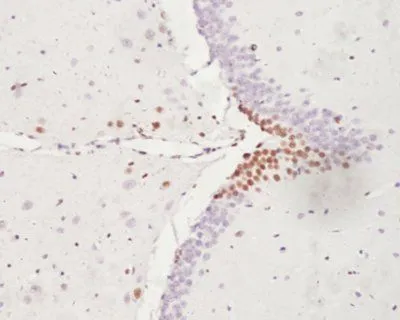
IHC-P analysis of mouse liver tissue using GTX37776 ATF3 antibody.
ATF3 antibody
GTX37776
ApplicationsWestern Blot, ImmunoHistoChemistry, ImmunoHistoChemistry Paraffin
Product group Antibodies
ReactivityHuman, Mouse, Rat
TargetATF3
Overview
- SupplierGeneTex
- Product NameATF3 antibody
- Delivery Days Customer9
- Application Supplier NoteWB: 1:500-2000. IHC-P: 1:400-800. *Optimal dilutions/concentrations should be determined by the researcher.Not tested in other applications.
- ApplicationsWestern Blot, ImmunoHistoChemistry, ImmunoHistoChemistry Paraffin
- CertificationResearch Use Only
- ClonalityPolyclonal
- Concentration0.5 mg/ml
- ConjugateUnconjugated
- Gene ID467
- Target nameATF3
- Target descriptionactivating transcription factor 3
- Target synonymscyclic AMP-dependent transcription factor ATF-3, cAMP-dependent transcription factor ATF-3
- HostRabbit
- IsotypeIgG
- Protein IDP18847
- Protein NameCyclic AMP-dependent transcription factor ATF-3
- Scientific DescriptionThis gene encodes a member of the mammalian activation transcription factor/cAMP responsive element-binding (CREB) protein family of transcription factors. This gene is induced by a variety of signals, including many of those encountered by cancer cells, and is involved in the complex process of cellular stress response. Multiple transcript variants encoding different isoforms have been found for this gene. It is possible that alternative splicing of this gene may be physiologically important in the regulation of target genes. [provided by RefSeq, Apr 2011]
- ReactivityHuman, Mouse, Rat
- Storage Instruction-20°C or -80°C,2°C to 8°C
- UNSPSC41116161
References
- Co-existing TP53 and ARID1A mutations promote aggressive endometrial tumorigenesis. Reske JJ et al., 2021 Dec, PLoS GenetRead this paper
- Assessment of potential neuropathic changes in cattle after cautery disbudding. Vidondo B et al., 2019 Aug 6, Res Vet SciRead this paper

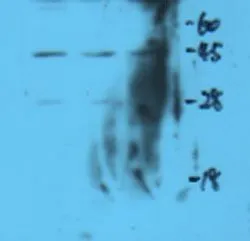
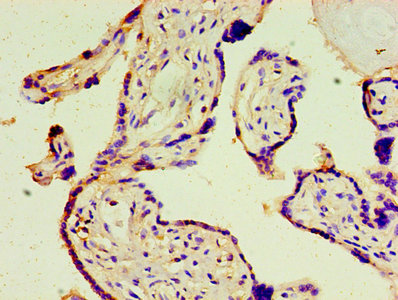


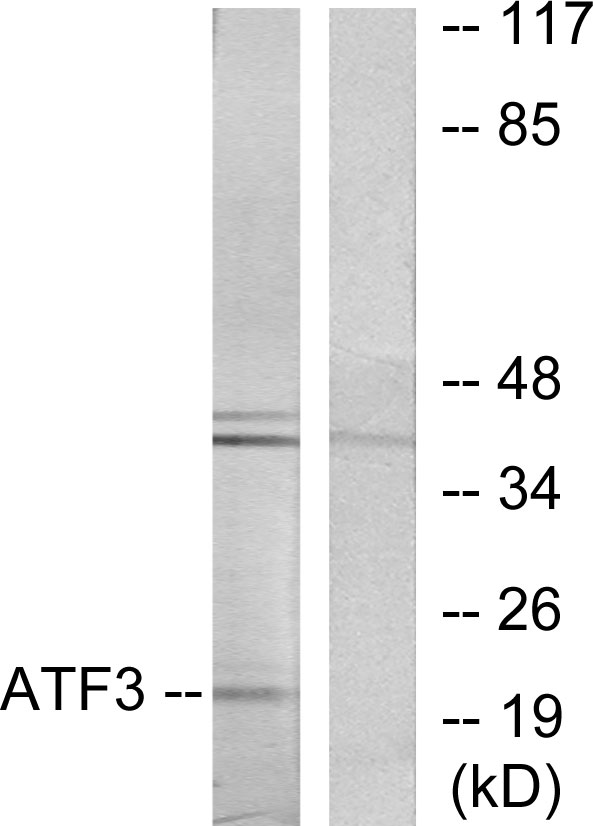

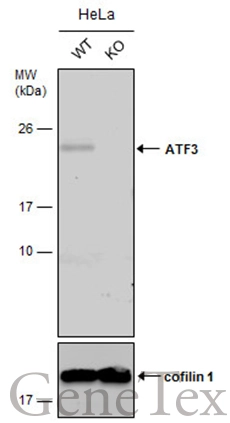
![Western blot of mammalian whole cell extract transfected with HA epitope tagged human ATF3. GeneTex's Affinity purified anti-ATF3 detects a band ~31 kDa corresponding to recombinant human ATF3. Immunostaining using GeneTex's anti-HA epitope tag antibody confirms the composition of the recombinant band (not shown). The protein was transferred to nitrocellulose in 30 minutes using standard methods. After blocking with 5% goat serum and 0.5% non-fat milk in PBS, the membrane was probed with the primary antibody diluted 1:200 in 0.2X blocking buffer in PBS overnight at 4oC. Reaction was followed by washes and reaction with a 1:5000 dilution of IRDye?800 conjugated Gt-a-Rabbit IgG [H&L] for 30 min at room temperature. LICOR's OdysseyR Infrared Imaging System was used to scan and process the image. Other detection systems will yield similar results.](https://www.genetex.com/upload/website/prouct_img/normal/GTX48669/GTX48669_20160330_WB_w_23060823_381.webp)